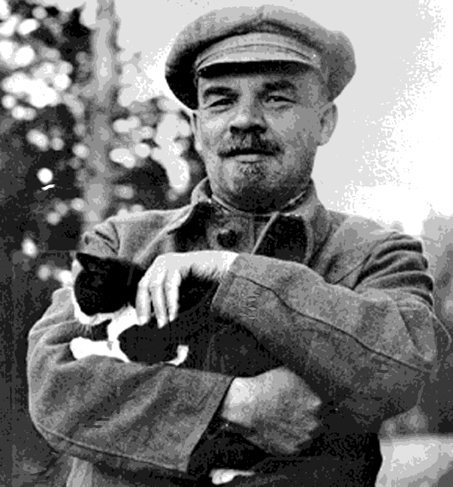- 03 Oct 2013 18:22
#14308525
There is still authority, but without private property it will have taken another form. This is necessary as we work within the physical world. But what creates and created takes on another form in the human experience.
Part of it is that our reality is how we interact with the physical world. Should a great revolution happen tomorrow and in the matter of a few hours (realizing this is impossible) everything is declared social property, but nothing has changed—you and I aren't going to actually experience life that differently. The system may have improved, maybe we have workplace democracy, so on and so forth, but we're still going to take our food home to our tables and watch our TVs while shoveling our faces with our food.
Our children we have with our wives will then go to school.
Their orientation of the world will be different. They will know the workplace democracy and so on and so forth less as an addition or change in status but as their reality. The idea of a hammer not belonging to his father but to society as a whole will not seem as foreign, though the child will still be biased in favour of what his parents say and the way they interact with the world.
This will continue, and each generation will have new art, new experiences, and new ways to look at the world. This is obvious, we have this now in part because of the rapid technological change in the last ten centuries.
But the socialist revolution will be different in that this concept of property, already decaying in our own time, will have been eliminated. Yes, as mentioned, speech and action will serve to stifle the reality of this change for some time.
But just as humans learned to pairbond with their mates in society over a long time, no longer just looking to fuck the cavewoman that was currently being fucked, we will learn to see things in a new way that's difficult for us currently to understand. We can see the outlines, but our relationship to our own material reality is warped—just as a peasant from feudal France would have no conception of abolition of African slaves as his vary concept of reality would scarcely be able to conceptualize race slavery, let alone its negation.

Alis Volat Propriis; Tiocfaidh ár lá; Proletarier Aller Länder, Vereinigt Euch!
Technology wrote:How does communist philosophy sought this problem out?
There is still authority, but without private property it will have taken another form. This is necessary as we work within the physical world. But what creates and created takes on another form in the human experience.
Technology wrote:So to achieve communism we educate people in the communist intent until as many old generations die off as to wash away the old conception of property, and make the new conception dominant. That seems fair, but people have to know exactly what that conception involves in order for it to reasonably maintain itself as a practical and useful conception.
Part of it is that our reality is how we interact with the physical world. Should a great revolution happen tomorrow and in the matter of a few hours (realizing this is impossible) everything is declared social property, but nothing has changed—you and I aren't going to actually experience life that differently. The system may have improved, maybe we have workplace democracy, so on and so forth, but we're still going to take our food home to our tables and watch our TVs while shoveling our faces with our food.
Our children we have with our wives will then go to school.
Their orientation of the world will be different. They will know the workplace democracy and so on and so forth less as an addition or change in status but as their reality. The idea of a hammer not belonging to his father but to society as a whole will not seem as foreign, though the child will still be biased in favour of what his parents say and the way they interact with the world.
This will continue, and each generation will have new art, new experiences, and new ways to look at the world. This is obvious, we have this now in part because of the rapid technological change in the last ten centuries.
But the socialist revolution will be different in that this concept of property, already decaying in our own time, will have been eliminated. Yes, as mentioned, speech and action will serve to stifle the reality of this change for some time.
But just as humans learned to pairbond with their mates in society over a long time, no longer just looking to fuck the cavewoman that was currently being fucked, we will learn to see things in a new way that's difficult for us currently to understand. We can see the outlines, but our relationship to our own material reality is warped—just as a peasant from feudal France would have no conception of abolition of African slaves as his vary concept of reality would scarcely be able to conceptualize race slavery, let alone its negation.

Alis Volat Propriis; Tiocfaidh ár lá; Proletarier Aller Länder, Vereinigt Euch!















 - By Rich
- By Rich - By Fasces
- By Fasces